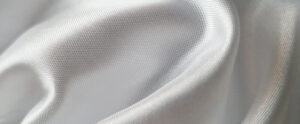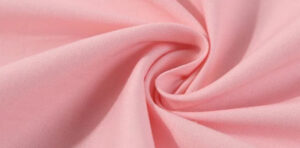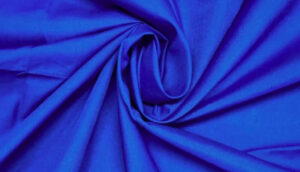Introduction:
Are you a supporter of polyester fabrics or cotton fabrics? We are often asked the question of which is better? Polyester vs. cotton? The battle between polyester and cotton fabrics has been around since they were applied to clothing. In fact, the struggle would be of great benefit to our understanding of polyester and cotton fabrics. They each have their advantages and disadvantages. Today we will introduce the knowledge about polyester fabrics and cotton fabrics in detail. You can choose the best one for you.
What is polyester fabric?

Polyester fabric is a synthetic fiber, which is a polymer compound. It is made from fossil fuels. Unlike natural fibers, polyester fabric has good shape retention and wrinkle resistance and high strength and elastic recovery. So it was introduced to make clothing in 1970. Because the polyester fabric is durable and inexpensive, it has gradually become popular and used in more ways. Besides, the touch of polyester material is also unique. Because it is artificial and actually plastic, it feels very unnatural. But you make it in a different way, and it makes you feel differently. Especially with the development of science and technology, it is completely feasible to make this fabric into a fabric with the same texture as silk.
Advantages
– Low cost
– Durable
– Moisture-wicking
– Easy care
– Wrinkle resistance
– Quick dry
– Versatile
Disadvantages
– Environmental pollution
– Resources Wasting
– Flammable
– Lack of breathability
– Health Concerns
What is cotton fabric?

Unlike polyester fabric, cotton is a natural fiber. Cotton fabric is made of cotton as raw material and produced by textile technology. It has the characteristics of breathability, moisture absorption, warmth retention, and heat resistance. Generally speaking, cotton fabric has better moisture absorption and heat resistance and is comfortable. And for some people with sensitive skin, cotton fabric is undoubtedly their best choice. Because of its comfort, softness, and breathability, cotton material is widely used to make clothes, blankets, bedding, and more.
Advantages
– Breathable
– Hypoallergenic
– Soft
– Absorbs moisture
– Versatile
Disadvantages
– Expensive
– Wear down faster
– Easy to wrinkled
– Serious shrinkage
– Not dry quickly
The similarities between the polyester fabric and cotton fabric
1. They are both versatile. They are widely used to make clothing, blankets, and bedding.
2. Polyester and cotton fabrics can be dyed in any color during processing. Rich colors make their appearance more attractive.
3. You can do things like heat and bleach to them; it’s not that hard.
4. Compared with other fabrics, their price is not high.
The differences between the polyester fabric and cotton fabric
1. Breathability
Breathability is a crucial factor for manufacturers choosing fabrics for clothing or bedding. In this regard, polyester fabrics and cotton fabrics have different performances.
If you wear a polyester garment in summer, you will complain that it is very hot and not breathable. This is a severe problem with polyester fabrics. Polyester fiber is not conducive to the flow of air. Therefore, people prefer to choose cotton clothes with better breathability, especially for their children. Indeed, cotton is a natural fiber, and it is very breathable. Good breathability makes cotton fabrics an excellent choice for some intimates.
2. Durability
Polyester fabric can hold its shape well and is not easily deformed as a sturdy and elastic fabric. Whether used in clothing or blankets, it can maintain the original material for a long time, has good durability, and is not easy to damage.
Cotton material is soft, but it can be easily damaged. But it’s important to point out that the weave is different, and the durability is different.
3. Softness
Which is softer, polyester fabric or cotton fabric? Cotton is a natural fiber. It is made of cotton as raw material. Therefore, cotton fabrics are very soft. Especially when you are wearing 100% cotton pajamas, you will fall asleep very comfortably. However, some kinds of cotton are also not soft due to different processing methods. For example, denim is very rough to the touch.
In contrast, polyester fabrics are made from fossil fuels. As an artificial fiber, it feels like plastic and is very unnatural. Polyester is far less soft than cotton. However, with the development of technology, manufacturers can process polyester material in different ways. For example, double-brush polyester fabric is almost as soft as cotton fabric.
4. Moisture-wicking
When you wear a polyester T-shirt for your morning run, you will find that your sweat is absorbed by the polyester fabric and slowly drained. Indeed, unlike cotton, polyester fabrics absorb moisture rather than get wet. The unique material makes polyester fabric the first choice for some sportswear and gym wear. The cotton fabric absorbs moisture. It absorbs moisture quickly and makes clothes soaked. It might sound uncomfortable, but in a way, it can also keep you cooler on a hot summer day. But that’s only for hot summer days, and it’s horrible in cold weather. You will feel wet and cold after you sweat. In hypothermia, you are very dangerous.
5. Colors
Both polyester and cotton fabrics can be dyed. Cotton fabric can be dyed easily, even deeper than polyester fabric. But the colors are quick to fade when exposed to sunlight. And during the dyeing and drying process, it can easily shrink and change its original shape and size.
Although the polyester material is not easy to dye, it even requires some special stains. But after the polyester fabric is dyed, it will not fade easily. And it will not deform even after repeated washing and drying.
6. Cost
Different types of cotton fabrics have different prices. For example, Egyptian cotton made of long fibers is known as a luxury in cotton. It is incredibly soft and durable and is often used as a fabric for some luxury clothing. And some cotton fabrics are less expensive, but as a natural fiber, they are generally more costly than polyester fabrics. Polyester fabrics are not deformable, durable, easy to care for, and not expensive, making polyester the choice of most people.
7. Care and Maintenance
Polyester fabric is easy to care for. Firstly, it is not easy to deform, so you can wear it all day without organizing it all the time, and it will not become very wrinkled. Then, the polyester material doesn’t get very dirty because it doesn’t absorb liquids easily. Finally, polyester is a quick-drying fabric, so you don’t have to worry about it! But polyester fabric also has a disadvantage. It holds the smell for a long time, and if you don’t wash it in time and leave it in a corner, you’re going to be in trouble. Cotton fabric is prone to wrinkling, which means careful ironing after washing, which can waste you a while. Cotton gets dirty quickly, and you need to soak it with some stain remover before washing it. Also, cotton fabrics do not dry fast, and you need to put them in a dryer after washing.
8. Sustainability
We all know that polyester fabric is very durable, but it also brings some troubles. Polyester is difficult to degrade. Polyester fabric usually comes from fossil fuels. Products made from fossil fuels are unsustainable. And a lot of greenhouse gases are generated in the production process, which has a bad impact on the air and the environment. Cotton is sustainable. As a natural fiber, it is fully biodegradable. The decomposed cotton fibers are converted into compost or reused.
Do you know polycotton?

Have you heard of polycotton? It is a blend of polyester and cotton. The content of polyester and cotton is different, but most of the time, there is more polyester. As you can see from the name, polycotton takes into account the advantages of polyester and cotton and can offset each other’s shortcomings at the same time. There is no doubt that this is a great invention. The emergence of polycotton has made people have a more straightforward choice.
Conclusion:
By reading this article, I think you have learned a lot about polyester fabric and cotton fabric. They each have their advantages and disadvantages. They are both favored by manufacturers and have a wide range of uses. In short, we should not judge whether a fabric is good or bad based on a certain character so that you may miss a good fabric. Choosing a fabric that works for you is the most important thing. Hopefully, this article can give you advice on choosing the suitable fabric.
If you want to know or buy polyester fabrics, you can contact us at any time.
